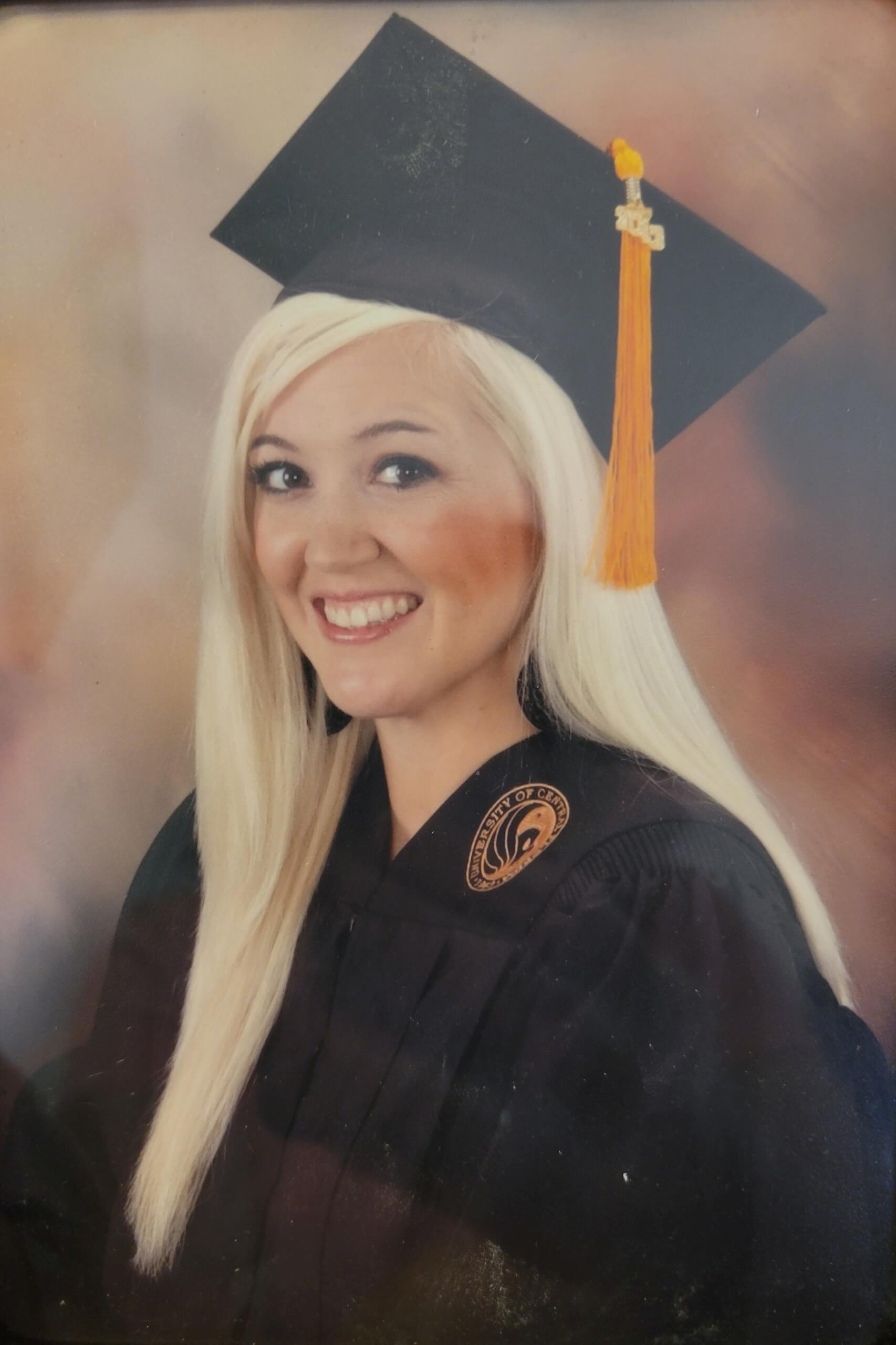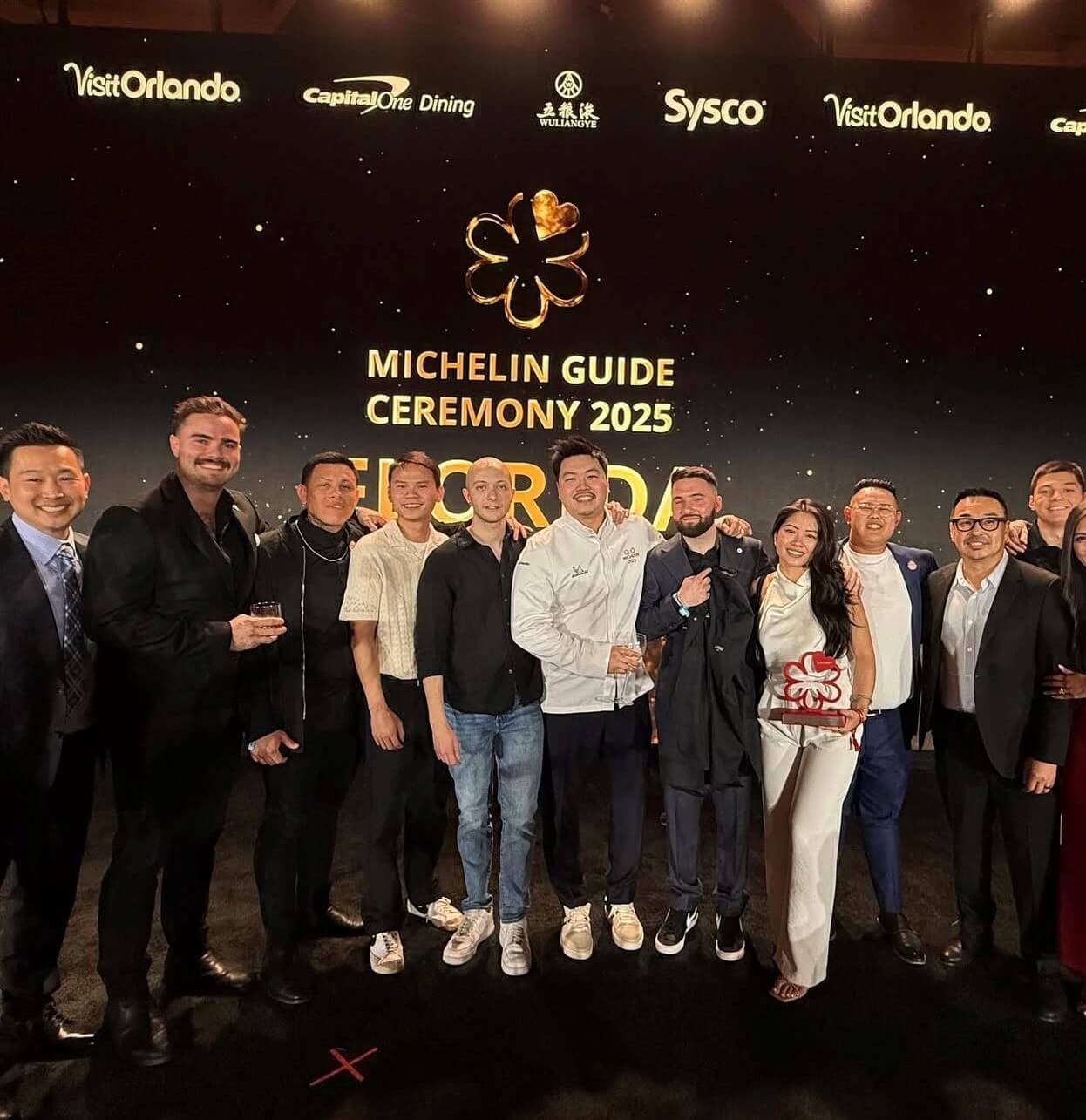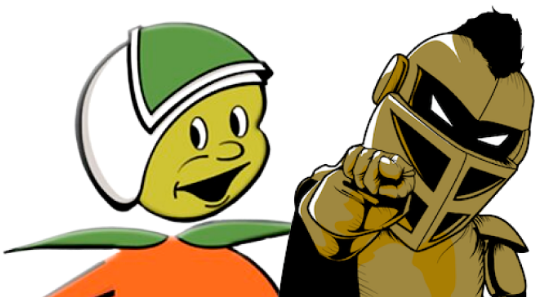Not Too Cool for School: Taylor Mills ’16 ’20MSHI Has Hot Career
Taylor Mills says that UCF is “just one of the coolest places that someone can go to find out who they are.”
In fact, the Lutz native liked it so much that she almost didn’t leave.
“I spent so long getting my degrees,” Mills says, “And here I am still involved. I just love everything about UCF. My husband, Jordan, and I watch all the sports – today we’re watching baseball and softball.” Mills also supports UCF philanthropically, especially the Office of Access and Community Engagement.
Mills was accepted into UCF directly after high school. Even though she could have gone to USF, just down the road from her home, she says she preferred the culture at UCF.
“I lived about two hours from UCF, which I feel was the perfect amount of space between my parents and me – I love my parents, but we all have to spread our wings, right?”
As sure as Mills was about her choice of college, she was less sure about what she was going to study.
“When I was in high school, I swore I was going to go into finance,” Mills says. “But in reality, I wasn’t sure what I wanted to do.”
She was persuaded to change her focus to sociology thanks to her then-boyfriend, now husband.
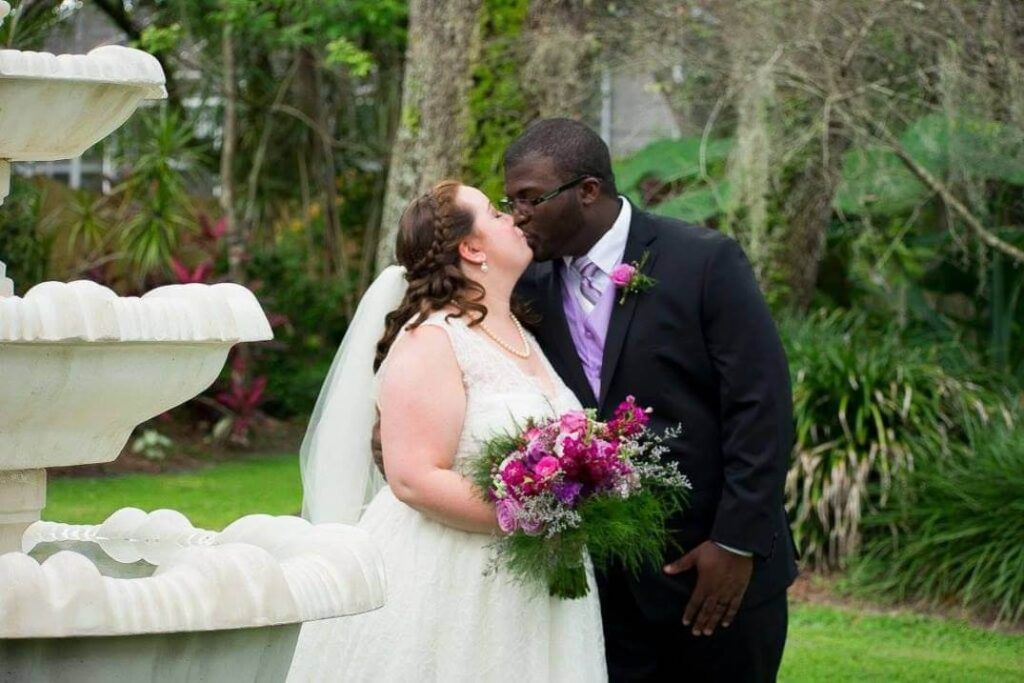
“He knew me, knew where my passions lay,” Mills says. “And when I looked at the course catalog for sociology, and I realized I loved everything about the curriculum.”
Once enrolled at UCF, Mills also made it a point to get involved with a sorority, homecoming activities, concerts, and comedy nights. Her lack of fondness for crowded spaces prevented her from joining the throng at Spirit Splash, but later, she earned a special duck with a mask when she graduated with her master’s degree during COVID.
One of her most memorable experiences was working on a research project with Ramon Hinojosa, an associate professor in the College of Sciences.
Its origins started in a larger survey-based project which explored the social mechanisms of college academic success and the presence of adverse childhood events for veteran and non-veteran students enrolled in college classes at a large university in the southeastern United States (UCF).
“I was just a freshman, and Dr. Hinojosa was my medical sociology professor,” Mills says. “I assisted with the transcription of interviews that the researchers gathered from military veterans. And because technology ten years ago was not what it is today, I had to listen to all the interviews.”
Mills says it was gratifying to know she had a small part in a project that could ultimately benefit our veterans, but becoming aware of the problem that necessitates research project can be depressing at times.
“Being part of a team that was highlighting these issues and knowing that we were paying attention to a previously unknown issue was satisfying.”
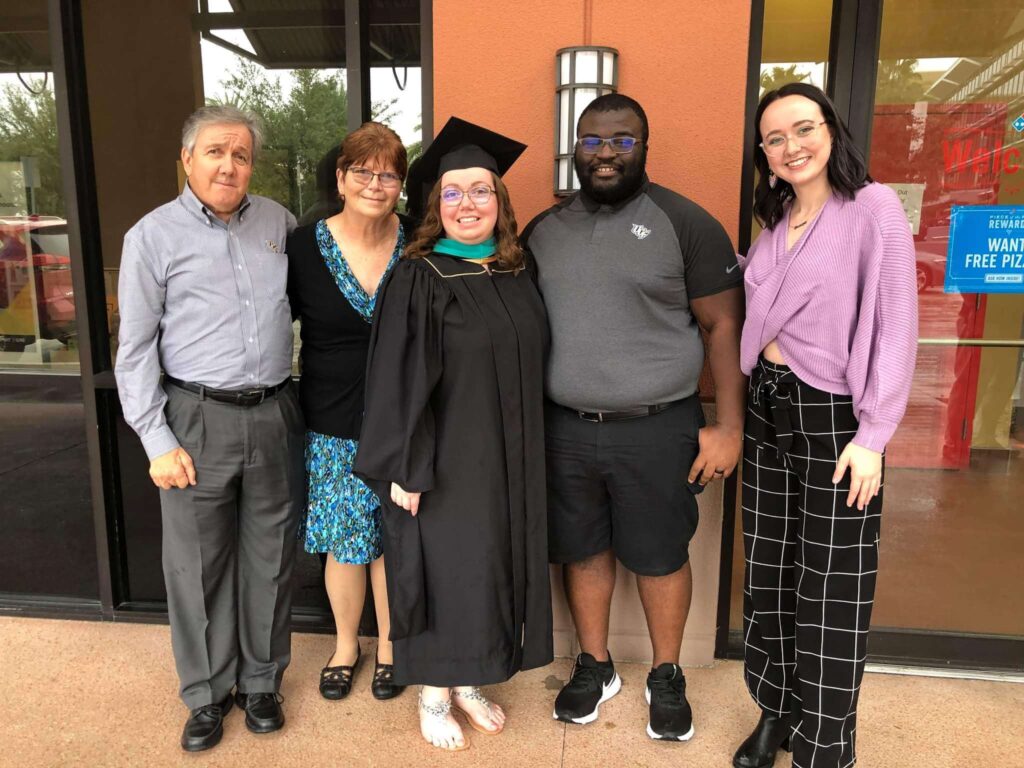
Mills graduated from UCF in three years; in hindsight, she recalls that it was a grueling schedule, but she says that she has always been very driven. She knew that she would eventually go back for her master’s degree, but she spent the two years after graduating trying to figure out her best path. She worked as a substitute teacher; in a bakery and an ice cream shop; got married, and then decided that it was time.
She learned about UCF’s Online Master of Science in Healthcare Informatics after thinking back to what she really enjoyed about her undergraduate program was data-driven results and health outcomes.
“The online program is very project-driven,” Mills says. “We did a lot of programming, and that was something that took a lot of my time. We also had a lot of reading and writing, but writing has always been fairly easy for me.”
Part of the programming aspect involved SQL, which is a query-running program; Mills also took a Python class where she built a database from scratch.
“That [programming] class made me cry,” Mills laughs. “But we – my cohort and I – got through it together.”
Mills had an internship with BayCare Health System in its IT program; her preceptor was one of the managers in nursing informatics. One of the projects that Mills worked on was a new telecommunications system that worked on hospital-provided iPhones. The technology was lightyears ahead of paging devices and overhead call systems, but also represented multiple project meetings to ensure that all end users agreed on any adjustments that were needed, Mills says.
“It was great to see the technology fully implemented,” Mills says, “Because seeing something that you worked so hard on finally being rolled out to the users was very rewarding.”
Mills works as an IT analyst at Tampa General Hospital in its IT department. She and the rest of her team use the program, EPIC, for their patients’ electronic health records. Mills is certified in EPIC Radiant, which is EPIC’s radiology information system.
Some of her day-to-day tasks include assisting with requests through the ticketing portal, as well as testing and upgrading the system periodically to ensure its functionality. There are also ongoing projects depending on the needs of the hospital business, Mills says, but the majority of her work involves fixing “anything that’s broken or not working properly.”
With two years under her belt at Tampa General, Mills says that looking back, she can see the role that the online master’s program has had on her career.
“The program gave me the tools that I needed to confirm this is the career path I want to pursue,” Mills says. “I enjoy the variety of knowing the rules and regulations that go along with working at a healthcare organization, as well as learning the coding and data analytics that the program provided.”
Mills, who graduated with a degree in sociology and found her way to the online healthcare informatics program, says it’s possible to thrive in the healthcare informatics program without having a tech background.
“One of the most important things to remember is that people have different sides of themselves, and just because you may not have explored that part of yourself, does not mean you won’t be successful at it,” Mills says. “Life is all about learning new things.”
Mills also says that one of the best parts about her job is that she is helping make healthcare more responsive to the people it serves.
“We know that social workers, teachers, and physicians and the people who go into the ‘helping’ professions want to make the world a better place,” Mills says. “But I believe that through the work I do, even behind a computer most of the time, that I am still helping people, and that’s very fulfilling to me. I’m so happy and grateful to UCF for offering this program.”
